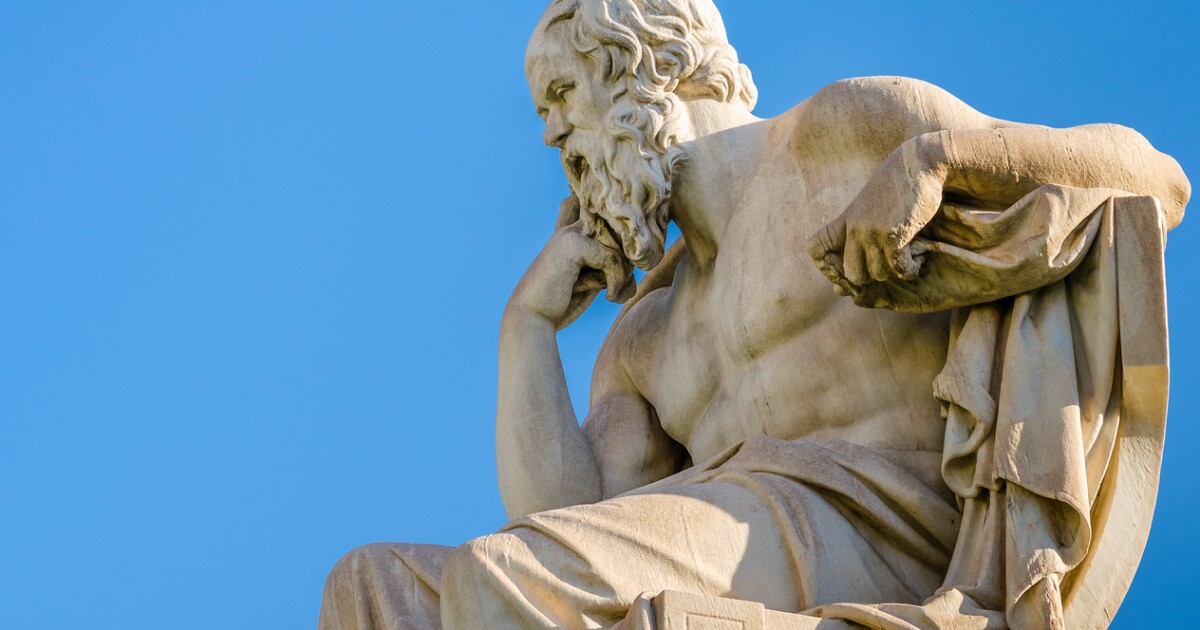

Conservative activists and education experts are turning to the ancient writings of Aristotle, Homer, and Dante to push for school choice.
The idea revolves around the notion that school choice will expand the availability of so-called classical or “liberal arts” education, an education curriculum model that relies mostly on primary sources and encourages students to read the “classic” texts of history.
GIRL SCOUT COOKIES BECOME BIDENFLATION’S LATEST VICTIMS
Oklahoma superintendent Ryan Walters told the Washington Examiner in a recent interview that liberal education officials have, over the years, forced out the “great works” and replaced them with materials that are “not content rich” and overly simple.
“We know that these are classical works of literature that have stood for over 100 years that people identify with and people think [are] culturally rich,” Walters said. “We should be absolutely holding up these great works that really help solidify human nature.”
The superintendent’s ringing endorsement of a classical curriculum that emphasizes the works of Homer, Plato, Aristotle, Thomas Aquinas, and others, comes amid a broader push among conservative education experts and activists to revive a reliance on historical primary sources while formulating a classroom curriculum.
In recent years, classical private schools have seen an explosion of interest, primarily from Christian faith-based families. This growth was one of the topics discussed at a Tuesday event on classical education at the Heritage Foundation, a conservative think tank.
The event brought together several prominent leaders and educators from within the classical education movement and was co-organized by leaders from Divine Mercy Academy, a classical Catholic school in Maryland.
While a significant portion of the event focused on the virtues of classical education, several speakers said the positive reputation that classical education generally enjoys and its scarcity in public education could be used as a selling point for school choice, which allows public funds to be used by families for private education.
School choice has enjoyed increased salience as a political issue, especially since the COVID-19 pandemic. Over the past two years, numerous Republican-controlled states have enacted universal school choice programs that will allow families to use state education funds for private school tuition.
At the event, Rachel Alexander Cambre, a visiting fellow at the Heritage Foundation’s education policy center, said that school choice is making classical education more accessible to families who may be interested in it.
“School choice policies are realigning K-12 education in accordance with principles of human nature, first and foremost, that principle that the parent is the primary educator of their children,” Cambre said. “Once the law recognizes that, parents not only have the freedom but feel invited to assume that role, and to become more involved in researching what curriculum [is being used].”
Cambre said classical education is “not a hard sell,” but many parents don’t know that it is an available option; nevertheless, when school choice is enacted, more classical schools tend to open.
“We see when these states adopt these [school choice] policies, more classical schools open, classical home school co-ops, micro-schools, all form,” Cambre said.
CLICK HERE TO READ MORE FROM THE WASHINGTON EXAMINER
For Cambre, the appeal of classical education lies in a fundamental principle of the purpose of education, which she said is the formation of the person’s soul.
“Education is not a matter of programming machines but a matter of shaping souls, which begins in the home and in the family,” she said. “And this is a classical principle; this is a classical principle with roots in the ancient worlds of Jerusalem and Athens.”





